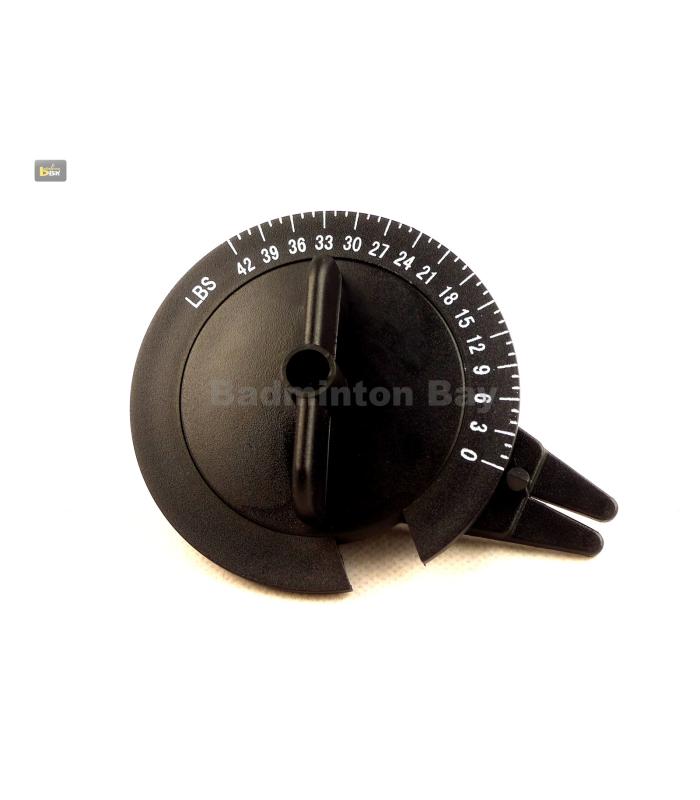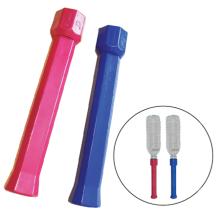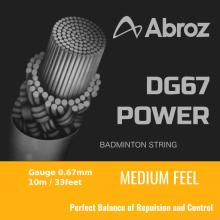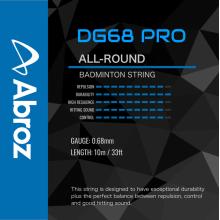Abroz's String Tension Tester AZ-TT100 - used to measure Badminton Racket.
Measure your badminton racket string tension to know your optimum or best tension performance.
And identify when is the right time to re-string.
Easy to operate, constructed with durable material, ergonomic design andallows for quick, easy and reliable readings.
- Measurement unit in LBS
- Calibrated Spring for Badminton Racket measurement
- Reading range: up to 42 lbs string tension
Instruction
Tension tester is calibrated to measure the “actual tension” of nylon strings after they are strung. It serves as a good measure of relative tension for other types of string as well. What is important to you is the Tension testing range that works best for you and your game. Once the average tension readings fall out of this range, you know it’s time to restring.
Due to many factors involved in determining the final or “actual tension” of a finished string job, this tension number will nearly always vary from the “reference tension” - the tension a stringing machine is set to pull the string. Some of the main contributing factors are the string employed, the stringing machine type, the design of racket and the stringing method.
It is important to take a number of readings from the area around 2, 4, 8 and 10 o'clock position of the string bed and use an average. Only the main strings are tested for averaging tension. The tie off strings and the cross strings are not used for averaging tension. Racket design and the stringing process usually cause the cross strings to be about 30% looser than the main strings. Cross strings may be checked for relative consistency.
Directions
| 1. | Turn the pointer counter-clockwise until it is align with "0" on the scale. | 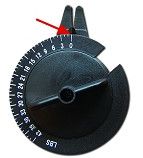 |
| 2. | Insert the cylindrical rods (they are on the under side of the tension tester) on to the string bed so they straddle where the string cross. | 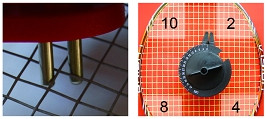 |
| 3. | Rotate the tension tester dial clockwise until the string being tested (main string) is centered in "V" groove. While the string is centered, get the reading on scale where the pointer is pointing at. | 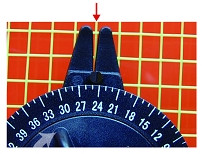 |
|
Notes: Read more on BADMINTON RACKET STRING TENSION GUIDE |
||

 I purchase APACS Shoes from Badminton Bay. The service and staff there really good and they know what there were doing. For those who were looking to buy anything from Badminton Bay I really recommended. 10/10"
I purchase APACS Shoes from Badminton Bay. The service and staff there really good and they know what there were doing. For those who were looking to buy anything from Badminton Bay I really recommended. 10/10"
Farhan Slyrex ,

